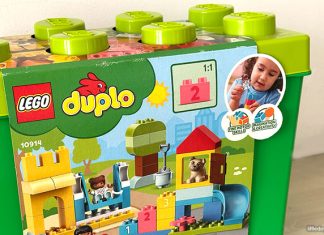
Those who find parenting challenging might wonder why it is often so difficult. Did our parents have the same struggles? We attended a webinar about Parenting Problems by Dr Daniel Fung, head of Institute of Mental Health, recently and here are some common perception problems he surmised from the many cases he has seen over the years.
Misconception 1: Parenting is the same (for everyone)

Parenting is unique to every parent, even within a family. Each parent brings with them a different perspective, principles and a different aspect of life to the child. Other caregivers who care for the child are also playing parenting roles. It is important to note that caregiving is important and beneficial to the child’s development.
There are a few parenting styles generally measured in terms of responsiveness and demandingness.
MID AUTUMN FESTIVAL: Lanterns, Lights and Festive Fun
GIVEAWAY FOR ENEWSLETTER SUBSCRIBERS: LEGO DUPLO Deluxe Brick Box
Neglectful parenting is being uninvolved and having little demands on the child.
Permissive parenting is highly responsive yet low in expectations, thus becomes indulgent and giving in too much.
Authoritarian parenting is low in responsiveness, yet highly demanding. A typical style would be barking out orders and expecting compliance.
Tip: The ideal parenting style is to have high responsiveness and some level of expectations. This is also termed Authoritative Parenting which results in a reciprocal relationship that gives the child direction. Explain reasons to the child and expect obedience.
Misconception 2: Parenting is about the parent
Many might think parenting is all about the parent’s work. There is much more to it.
First parents need to determine their child’s temperament and use different techniques on each unique child. Amongst siblings or even twins, they can be very different from one another.
The environment also impacts the relationships of the parents and their emotional state, thus affecting how they parent.
Tip: Parent according to each child’s temperament and peculiarities. Are they an orchid or a dandelion? You can read some more tips in our link on parenting sensitive children.
Misconception 3: Parenting is done by parents only
It takes a village to raise a child. Parenting is not just the parents’ role but an entire community of support. Engage the help of grandparents, aunts, uncles, close friends to help care for the child. This is especially needful for single parents who really need the support.
One tip from Dr Daniel Fung is to engage social service agencies and close friends if familial support is lacking.
Misconception 4: Parenting is expensive
This is probably heard often as parents lament about how expensive it gets. However, is there really a need for many classes? Perhaps ask your child what he or she enjoys and what is important. To many of them, all they want is a happy family and not a huge number of classes to attend. Pick one or two hobbies for the child to hone, and perhaps more family time is needful rather than spending on more enrichment. You can determine the cost, rather than let peers and society determine your parenting journey for you.
Misconception 5: Parenting is about control
Parenting is not about control but about conditioning.
Use rules, rewards and punishments to help you. Positive reinforcement should be used to increase positive behaviour. This applies even for adults, say words of encouragement, appreciation and praise often.
Use negative reinforcement to reduce poor behaviour, and you can also use punishments for severe misdeeds. You can also remove obstacles that hinder them from doing something right. Distractions like the screen or devices can hinder their ability to make the right decisions or do the right thing.
Correct the Misconceptions for a Happier Parenting Journey
Having highlighted the common misconceptions about parenting, let us be more aware about our own perceptions that may hinder us from being effective parents. Learning to connect with our child, understanding more about them and learning to put their emotional health as a priority can aid us in having happier families.























